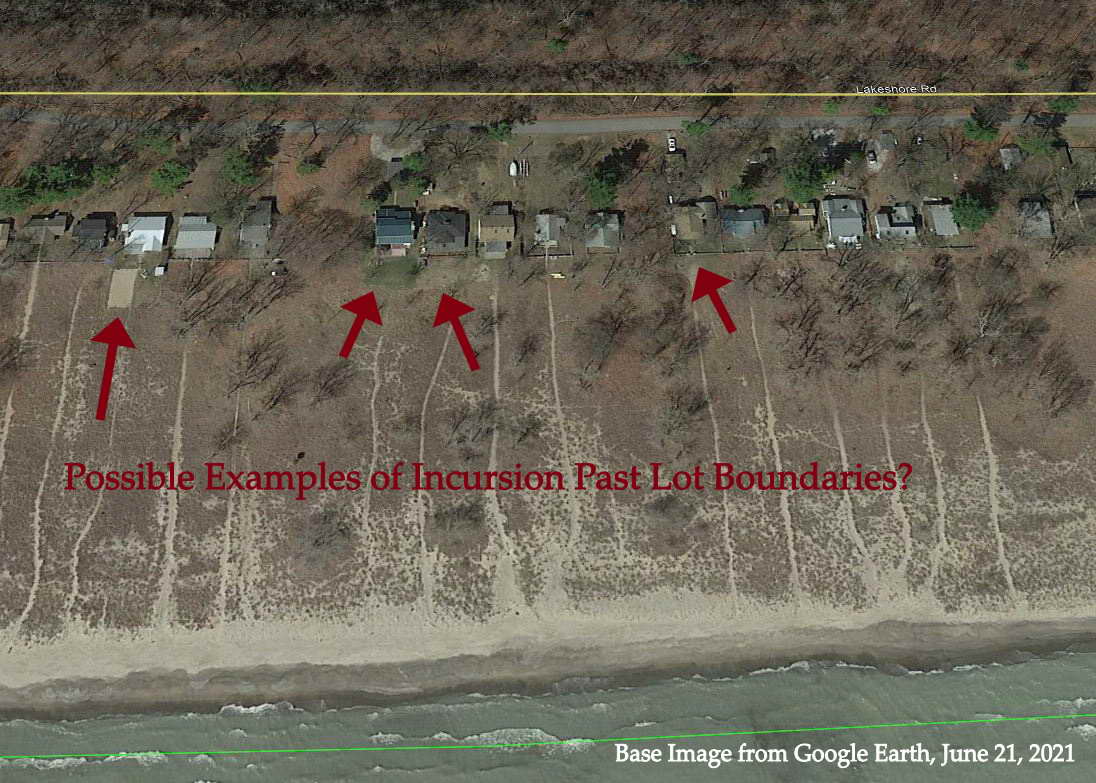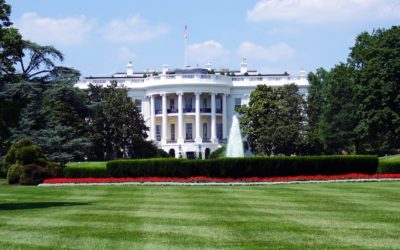A Little Background on the Rondeau Issue
When was the last time a cottager from Rondeau Park invited you to a party at their place? It seems like the least they could do is make sure everybody in Chatham-Kent gets a thank-you card. After all, it’s your tax money being spent by the Municipality on behalf of the cottagers to keep them in their cottages. And by the way, it’s been going on since 2014.
Perhaps a little context may help.
By the middle of the 1800s, the province had already put land-use restrictions on the point of land that sheltered Rondeau Bay. The area then became Ontario’s second provincial park in 1894 with cottages a part of the initial plan. This reflects 19th-century views of land use, which did not focus on ecological preservation. Over the last century, a more modern view of the stewardship of unique Crown Lands has developed as has an understanding of the importance of restoring and preserving ecological systems.
In 1894, when the park was created, the intent was for recreational activities such as hunting, fishing and camping. To offset the costs of the park and increase tourism, small plots of land were laid out for building cottages and came with 100-year leases. At the end of the lease period, either the leases would be extended, or those that had built cottages on the lots would need to remove all of their structures. It may have been 100 years down the road, but the potential to not renew the leases has always been a part of the deal.
In 1986, thirty-five years ago, the province determined that leases would be extended to 2017, but not beyond. Through study and public consultation, the Province had determined that cottages no longer fit the best practices of Provincial Park use. An end date in 2017 would allow a further three decades of use during which time cottage owners could realize the full value of any improvements they had made on the lots. It would also provide a fair warning that the era of cottage life within the park was coming to an end. The issue was revisited again in 2013, with the study finding that park cottages are a net drain on resources and not positive for the natural environment.
Discontinued leases were always part of the risk of having a cottage in the park. Some cottagers saw the writing on the wall and sold, or did not renew their leases, while others remained. In 2017 the cottagers successfully gained a few more years, and continue today to push for the extension of their leases. Some even continue to remodel and expand their buildings. Who could blame them? The beach view lots are prime cottage real-estate. However, the cottagers have known since 1986 that the end was nigh. It’s not a raw deal when it’s part of the deal from the outset.
CK Council Gets Involved With the Rondeau Cottages
A funny thing happened in 2014, though. After the 2013 study, which confirmed the Province’s plan to remove the cottages, the Municipality of Chatham-Kent got involved. They tried to subvert the provincial plans by having the provincial park protected under a municipal historic designation. The Municipal Heritage Commision said at the time that they were uncomfortable with this because Rondeau Provincial Park is not part of Chatham-Kent. It is, in fact, a Provincial Park. They also mentioned that many of the structures in the park didn’t meet their criteria for historic designation.
Undaunted by the opinions of the people who were actually charged with determining what is historic and what isn’t within Chatham-Kent, Council passed a Historic designation on its own. They also paid at least $64,000 of taxpayer monies for the study and to complete the Rondeau Conservation District Plan and Guidelines. The end result? The Ontario Municipal Board ruled CK did not have the authority to do this because the cottages were not within the Municipality.
The ecologically fragile sand spit that we know today as Rondeau Provincial Park, including its cottages, has never been a part of Kent County. The park forms a border with CK, just like Essex, Lambton, and Middlesex Counties. Just as it would be a misuse of resources for the Municipality of Chatham-Kent to involve itself in local disputes within neighbouring counties, so too it is wrong to be involved in the Rondeau Park Cottage issue.
2017 came and went. The cottagers continued the fight to keep their cottages. The deadline was extended, and here we are today.
CK, Cottages, and Rondeau Ecology
Today is 2021, and not 1894, or even 1986. We know today, and any scientist with integrity would agree, that humans and their houses are generally not good for fragile environments. You can not build a house in a fragile ecosystem and then claim to be a “good steward” of the land in the same breath.
The attempted 2014 creation of a Municipal “conservation area” is a joke too. Lot maintenance and the structures themselves harbour invasive species and mice which support the Lyme Disease-bearing variety of ticks. The roads to and from the cottages contribute to the roadkill of endangered species. Perhaps worst of all are the modifications made to the landscape by the cottagers outside of their lots, which contribute to erosion and habitat destruction.
Environmentally, there is no justification for keeping the cottages in the park. Given the Municipality of Chatham-Kent’s recent and shocking discovery that our local natural heritage is nearly wiped out, it would be more rational to support the removal of man made structures followed by ecological restoration in the area. After all, the park houses “80 at-risk animal species and 300 significant plant species” within its borders. Unfortunately, history has shown that Council acting in ways which protect the environment will always struggle to compete against human desire coupled with enough dollars.
A section of Lake Erie beach in Rondeau Park. Footpaths are evident, as is possible beachscape modification outside of lot limits.
CK’s Municipal interest obviously isn’t about the natural environment of the park. The beach area, it should be noted, is the most fragile of all the ecosystems in the park. The majority of the cottages are spread along the shoreline on lots which are actually quite small. Try, however, to find a section of Lake Erie beach in the park that doesn’t have a cottage between you and the road and you will find that a hard thing to do. A look at Google Earth shows how much of the lakefront is isolated behind the choice lots.
Red highligts show the approximate extent of cottage properties in Rondeau Park
Most of these prime lots are considered to be “waterview” and not “waterfront”, a distinction that gives the land they sit on a valuation discount. In practice, the area between the cottage lot and the lake, otherwise known as “the beach,” is “accessible from cottage lots even though it is not included in their tenure.” Here again, Google Earth demonstrates that nearly every “waterview” cottage has essentially annexed the beachfront and worn paths through the fragile ecosystem. Sure, the cottagers don’t lease the beach, but the arrangement pretty much ensures a setting where public lands become de facto private playgrounds.
Rondeau Questions Don’t Come with Clear Answers
So why does the Municipality continually get drawn into something that is not a Chatham-Kent issue, and that has negative environmental implications? It’s a legitimate question that for some reason, Administration either can’t or refuses to answer.
In the past few months, Municipal Council started asking questions about the cottage issue. The result was that Administration brought a sort of backgrounder report to Council which was accepted on May 10. This was followed by a short Q and A between various councilors and Don Shropshire, the CAO of the Municipality of Chatham-Kent.
Shropshire was asked, essentially, how did we get here?, He replied, “The issue has been in the community, being discussed, long before I ever moved to Chatham-Kent. It’s gone back at least 12 years since I have been involved with the Municipality. In the last three years, the cottagers had received notice from the provincial government that their leases were coming to an end and they were anxious about how that was going to turn out. I came to council in closed [session?] approximately 18 months ago and provided council with the first update indicating that there was some interest on behalf of the cottagers to see if we could do anything on their behalf to try and rectify the situation.”
On the surface, it seems as if CK was brought into this as a semi-reluctant third party, eager to settle a quarrel between others. In fact, the cottagers had received notice that the lot leasing era would end back in 1954. And again in 1986, 2013, 2017 and 2019. The May 10th report also implies that the Municipality has held an active role in this dispute between the cottagers and the province.
Of note, too, was that in the public portion of the presentation, no one saw fit to mention that Chatham-Kent’s Medical Officer of Health, Dr. David Colby is the President of the Rondeau Cottagers Association. Nor was it mentioned that Brian French, a supervisor within the Chatham-Kent Police is the Vice-President. In a report which states that many positive meetings with the association have already taken place, shouldn’t the role that two municipal employees are playing (or not playing) be publicly acknowledged?
This is not an accusation of impropriety. It is a highlight of bad optics on the Municipality’s part when they won’t tell the citizens how much time, on our dime, that these two have spent working within the Civic Centre to further their personal interests with the cottages. The answer may be 0, but again, the Municipality won’t answer the question.
Ken Bell, a resident of Chatham-Kent, wanted to know two things. “Who,” he asked the Municipality, “was involved in developing the presentation that was brought to Council by Don Shropshire?” and “How was this proposal [the transfer of cottager leased land to the Municipality] put together?” He wanted to see the communications. He wanted to find out what meetings were held and who was at those meetings. In effect, he wanted to get a sense of the amount of effort being expended without public knowledge and who was involved.
The response was a classic tool used by Administration when they don’t want to answer questions. “About a week later, they sent me a notice of delay,” Bell said. “They said they won’t be able to get the information until July and that it might be very costly.” In effect, they are saying Bell will have to pay up if he wants to find out what is going on behind closed doors.
Rondeau Final Thoughts
This smells bad. At best we have a mistaken use of Administration resources without the advice and consent of Council to pursue something that was none of their business. At worst, we have a calculated plan for using public resources to benefit a few privileged and well connected people, many of whom do not even reside in Chatham-Kent. On the surface it looks like either way, the bet was correctly made that Council would just go along with it, that the tail would wag the dog.
It boils down to a few issues. First and foremost, is this a Chatham-Kent issue? The answer is clearly “no.” Are cottages good for the fragile environment found in the park? Again, the answer is “no.” Did Administration become heavily involved because Council, voting in open session, told them to? That doesn’t seem to be the case either. While losing their cottages would certainly suck for the cottagers, their struggle is not something that should be subsidized by the taxpayers of Chatham-Kent.
And finally, no matter how much time and money are spent on planning, this could still all come to naught. The park, and the leased land, is owned by the people of Ontario. Even if all the details are worked out to keep the cottages, the Province still has to consult the people of Ontario, who very well could say, “sorry, but the cottages have to go.” It is what they have said before.
Remember the pandemic-induced declines in tax revenue which forced the Municipality to close or reduce services? Remember the reduced maintenance and grass cutting in parks and on Municipal property? Remember the furloughed and shuffled around public service employees? Against this backdrop, the Municipality still thought it was a good idea to spend your tax dollars on behalf of a group of cottagers whose leased land isn’t in Chatham-Kent.
Give us a shout when you get that party invitation or thank-you card from a Rondeau cottager.
Please support Candid Badger! Help us continue to bring a variety of stories, local and distant, to the community.
For Further Reading:
Rondeau Cottagers Association / Whats Wrong in Rondeau: Part 1, Part 2
May 10, 2021 Report to Council / 2014 Blackburn News Report
Value of Current Leases 2013 Provincial Report
Chatham-Kent Council May 10 Meeting. Rondeau Comments start around the 1:30:00 mark
Please follow The Candid Badger








0 Comments